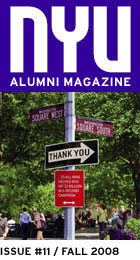nonfiction
Of Violence or Valor
A journalist chronicles the rise and fall of a Balkans’ war criminal
by Wesley Yang
Beloved mass murderer: We would like to think this epithet names something too paradoxical to exist. But there have always been hard men who thrive on violence and do the dirty work of the nation–state or the revolution, just as there have always been people willing to deny or minimize their crimes, to glorify their strength, and to honor them in death. Stalin and Mao are perhaps the most infamous on a long list.Zeljko Raznatovic, better known as “Arkan,” is the most recent addition to this club. During the conflicts following the breakup of the former Yugoslavia in the 1990s, Arkan led a paramilitary outfit consisting of as many as 10,000 Serbian nationalist thugs, crooks, and soccer fans who rampaged through Croatia and Bosnia and Herzegovina murdering, robbing, raping, and “ethnically cleansing” Muslims and Croats. He was also, toward the end of his life, Serbia’s most famous, powerful, and admired man.
Christopher S. Stewart (GAL ’96), goes in pursuit of Arkan in Hunting the Tiger: The Fast Life and Violent Death of the Balkans’ Most Dangerous Man (Thomas Dunne Books), following him from his delinquent youth in Josip Broz Tito’s communist Yugoslavia to his 2000 assassination in a Belgrade hotel lobby. The book is a vivid mixture of investigative journalism, historical survey and the journalist’s encounters with some unsavory men he spent three years tracking down. “Getting people to talk about [Arkan] is a risky endeavor,” Stewart says. “If they talk at all, they want to do it anonymously. And if you ask about him, they become immediately suspicious of you and monitor the rest of your time in Serbia.”
Maintaining a judicious take on Arkan’s career and the complicated politics of the region, Stewart traces his evolution from petty thief to hit man for Tito’s secret police and partner in President Slobodan Milosevic’s bid to secure a Greater Serbia. Throughout, Arkan operated with impunity, protected from domestic arrest, and aided in crossing borders—and breaking out of international prisons—by the UDBA, a KGBlike state spy agency. Stewart quotes Arkan’s former UDBA handler: “[He] was pathological and prone to do things most other humans wouldn’t think of. He would hurt you or kill you without thinking twice. That was important to the agency.”
As the country broke into ethnically defined states, Arkan began his transition from mob boss to warlord, fueled by his private army. In Bosnia and Croatia, Milosevic’s national army would surround a town, put up roadblocks, and shell it from a distance before paramilitary groups “rushed the town and mopped up” after. Arkan’s “Tigers” were the most ruthless of these units, committing countless atrocities, reportedly including the slaughter of more than 200 hospital inmates. He also made as much as $50 million in looted contraband and black–market trade, served a term as an elected member of Parliament, and married Yugoslavia’s biggest pop star. Insisting that he was nothing more than a soldier protecting opressed Serbs in the disputed territories, Arkan poured his money into a series of legitimate businesses (including a soccer team) and demonstrated a swaggering defiance of the West that many of his countrymen admired.
Soon after NATO’s bombardment of Serbia brought an end to the war in Kosovo and broke Milosevic’s grip on power, Arkan fell victim to the violence that had enriched him, murdered by a 23–year–old ex–cop moonlighting as a mob enforcer. No one knows exactly why Arkan was killed, but many speculate that he knew too much about Milosevic to live. Fathoming how so many ordinary Serbians continue to admire Arkan in spite of his crimes proved hardest for the author to grasp, though he offers a hypothesis. “You have a people that is suffering so much, and they’re just looking for anything to empower them,” Stewart says. “Arkan was one of a few people who was powerful enough to stand up to the world when the world was against them, and they sort of just forgot about everything else that he did.”







